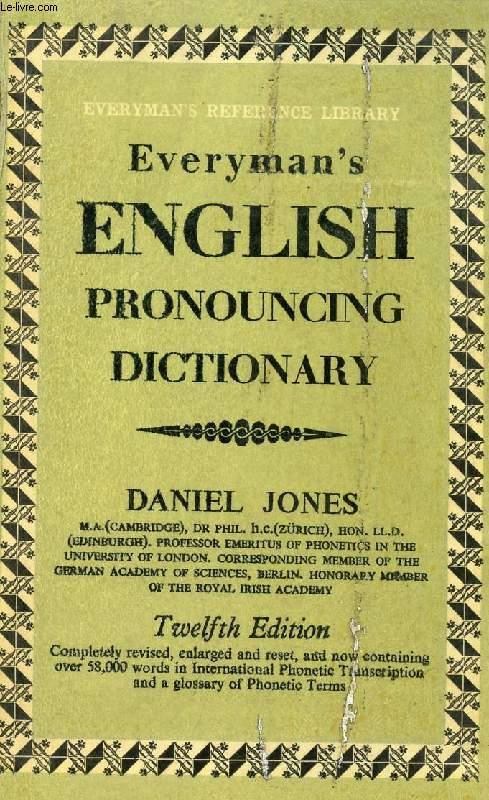The fate of Pronouncing Dictionaries

Today I was in a frenzy, trying to discard books I no longer read or consult... and I came across one that gave me a lot of food for thought, about the passing of time and how everything changes and grows old. I know these are trivial and commonplace musings, but as I was, and am, in a brown study and I thought I would share my ruminations with you.
The book in question is a classic, Everyman´s English Pronouncing Dictionary, by Daniel Jones. Here, and using the International Phonetic Alphabet we can learn how to pronounce words in English. There are no definitions and no notes, just phonetics (written phonetics).
Daniel Jones was a British phonetician (1881-1967), inventor of the cardinal vowel diagram. He sponsored the British Received Pronounciation and set the foundations of Standard English for the UK. Yet his dictionary has become useless, worthless. The copy I have was issued in 1972. What a pity... technology has rendered his magnum opus obsolete and discardable.
Today any dictionary online will give you, viva voce, the sound of any word. We can hear it as many times as we want to, with a click of the mouse. What a miracle!
The Dictionary Jones put together is useless now but, what shall I do with it? Keep it in the shelf for as long as I live? Try to sell it? Give it away? Throw it away? A dilemma indeed... but in the meantime I wonder whether my own written books will not meet the same fate and become useless and obsolete in the very near future.
Alas, tempus fugit, and technology gallops at runaway speed, while we hobble, frantically, after it.
There is no excuse now if we do not pronounce English words well. We can hear them.
Spanish dictionaries never had such a feature. It was never needed.
Comentarios
Publicar un comentario